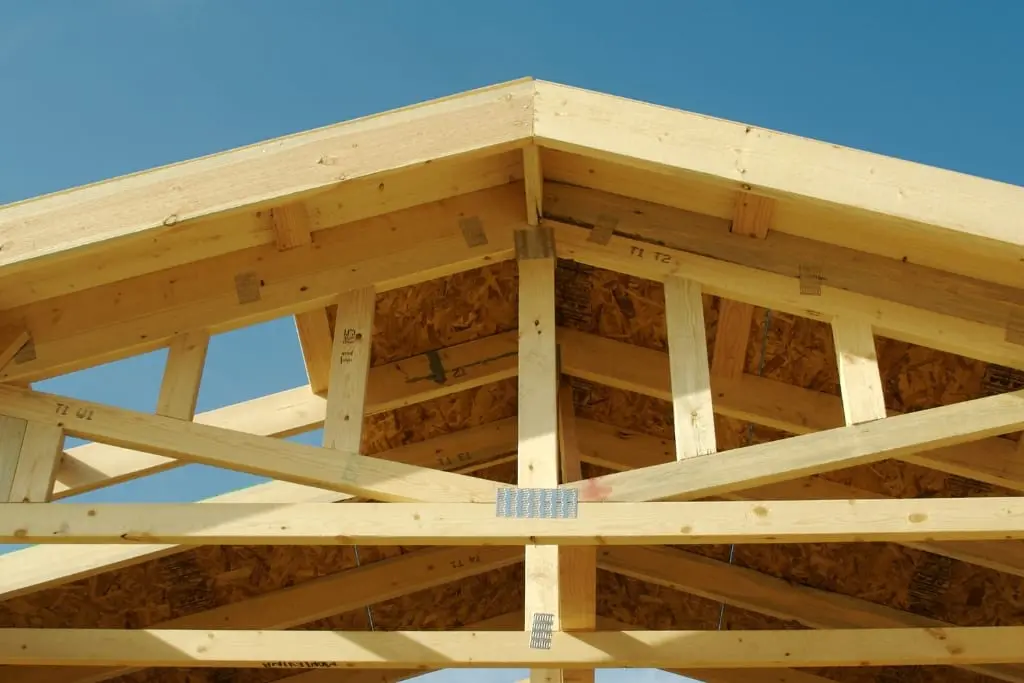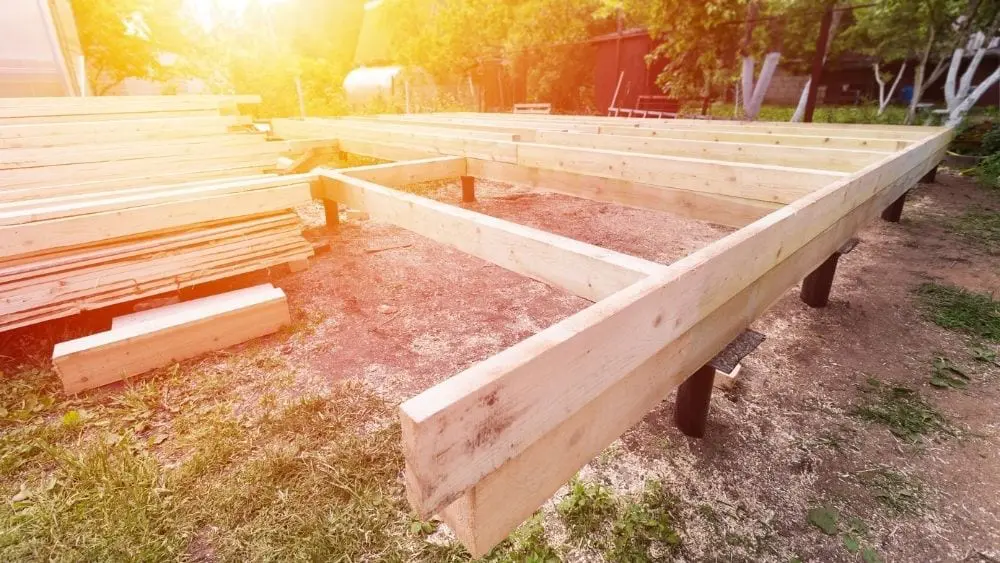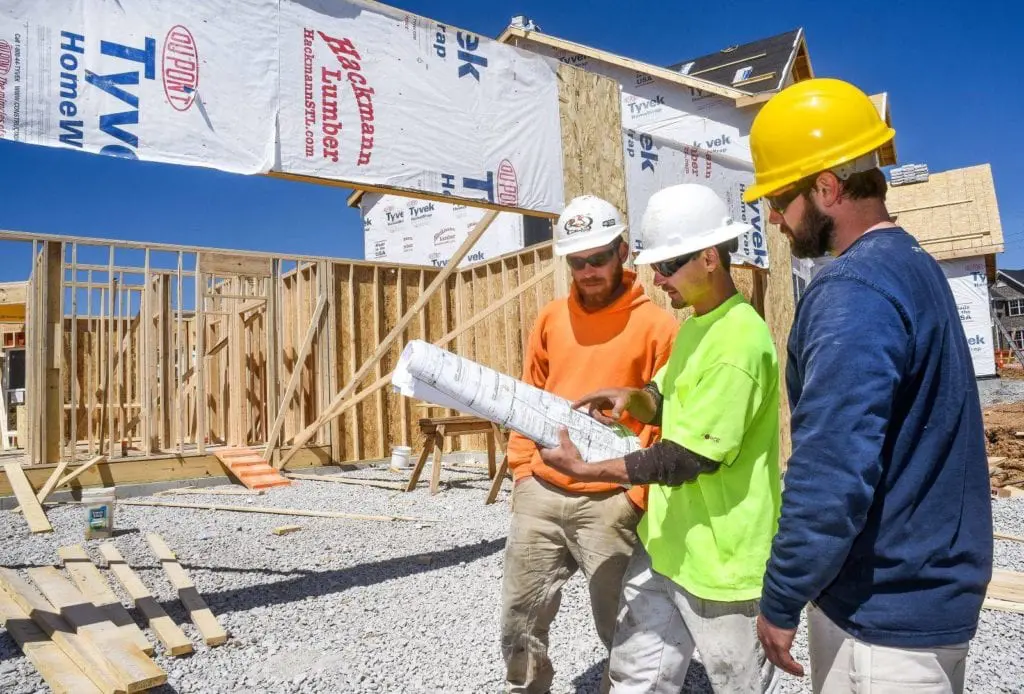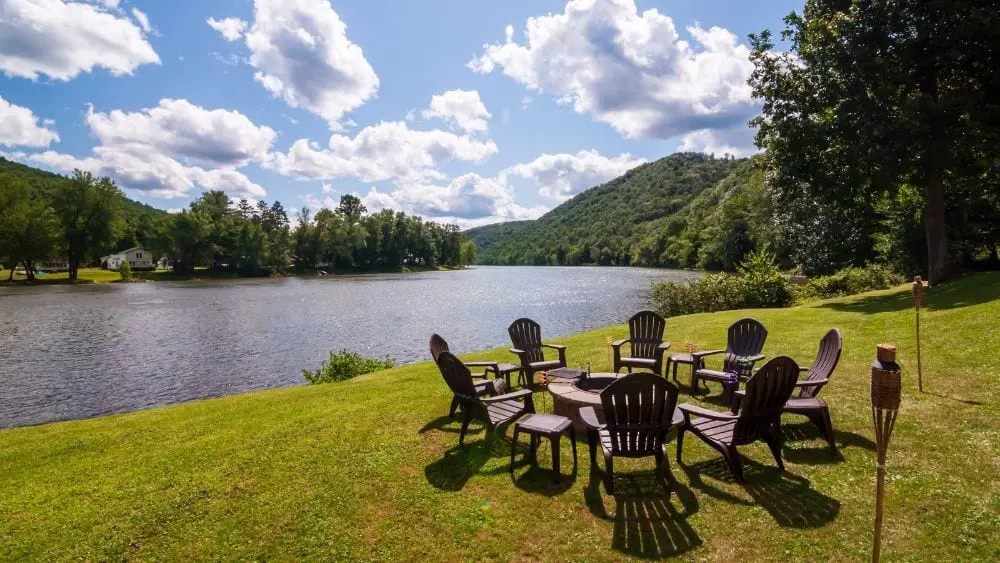
Pennsylvania is a state of incredible opportunities. From big businesses to small startups, the Keystone State is known for bringing together vibrant history and innovation. Quaint affordable cities meet booming city centers as well as the peaceful countryside. Professional sports teams, fabulous museums, and trendy art scenes make the state a hotspot for new buyers who desire to build their dream home in Pennsylvania.
Building a new house in Pennsylvania is a tedious process. There are many factors to take into consideration when planning the timeline, executing the budget, and hiring your team. The very first step is to plan your budget for building a new house, keeping in mind there may be state-specific expenses to pay or permits to obtain.
When you have a general understanding of your budget and the steps to build a new house, it’s critical to discuss your plans with your bank. Your lender will determine if the investment is feasible for your financial situation and then help you secure financing. Local contractors and municipalities will also provide a helpful resource to plan your home design according to local regulations and climate requirements.
For any folks looking to build a new home in Pennsylvania, here are a few considerations to be mindful of before you begin your move.
Climate Considerations
Pennsylvania homeowners can expect cold, snowy winters and mild, breezy summers. Much of the state has a humid continental climate with immense fluctuations in seasonal temperatures. Part of Philadelphia lies in the humid subtropical zone but still features very cold snowy winters. The mountainous interior of the state experiences prevailing winds, colder temperatures, and more cloudy days with snowfall.
The most common inclement weather in Pennsylvania occurs due to flooding, severe storms, winter storms, tornadoes, and tropical storms. Homeowners can prepare for potential stormy conditions by properly weatherizing their homes. This may include adding insulation to the walls and plumbing for protection during winter storms, installing storm drains, and regular maintenance to all working home systems. Homeowners should ensure that they maintain proper home insurance to protect against natural disasters.
Expected Cost
The average cost to build a new home in Pennsylvania is between $345,000 and $450,000. This is higher than the U.S. average of $283,500. Depending on your lot’s location, the average cost per square foot may be between $90 on the standard economy-level or up to $200 at the luxury level. The actual cost will vary by materials, location, size, and personal design preferences.
Construction Timeline

Here is a step-by-step guide for building your new house in Pennsylvania.
Buy Land
Homebuyers will save quite a bit in overall expenses by building on their own land in Pennsylvania. For those who do not already have the perfect plot picked out, a real estate guide can help you find the ideal location to suit your needs. In Pennsylvania, the cost per acre of farmland was $7,100 per acre in 2019, according to AcreTrader. This cost is naturally higher in cities and densely-populated residential areas; for example, lots in Philadelphia typically cost between $50,000 and $100,000.
It’s important to note that prospective homeowners are subject to additional fees beyond the minimum land price. There are added fees for those beginning new home construction tacked onto the overall expense, including a transfer fee of four percent of either the sales price or assessed value.
Prospective Pennsylvania homeowners should also consider the suitability of the land for building. If the site must be cleared or leveled, this will come at a price. If the plot is not already wired to water, sewage, and electricity, hiring a professional to connect your lot will be an added expense.
Permits
Pennsylvania’s statewide building code is generally known as the Uniform Construction Code (UCC). Typically, the UCC is administered and enforced locally by municipalities. Each municipality has the ability to enact more stringent or restrictive code measures for new construction. It is best to refer to your local city or county government’s website to determine which permits are required before you begin building.
Many municipalities, such as Pittsburgh, bundle the required permit applications into a single process. You must complete a full application, as well as provide detailed floor plans, elevation drawings, diagrams and specifications for your water, plumbing, HVAC, and electrical systems. Further, you must submit plans to confirm energy code compliance.
Some projects may also require a zoning permit, but your contractor should be well-versed in submitting the required paperwork to obtain these documents. Failure to secure the appropriate building permits may result in huge fines and penalties for both the homeowner and the general contractor.
Speaking of general contractors, it’s also beneficial to hire a general contractor who is licensed in Pennsylvania and is a member of the Pennsylvania Builders Association. Additionally, any building contractor should hold adequate builder’s insurance.
Foundation

The cost of building a home foundation in Pennsylvania is highly dependent on the style, size, and location. For example, a sprawling ranch-style home will require a larger and more expensive foundation than a two-story bungalow. In Pennsylvania, a new construction home foundation may cost between $4,000 and $25,000 for a no-basement option (concrete slab or crawlspace). Prospective Pennsylvania homebuyers who desire a basement will spend a bit more for the added space, typically between $10,000 and $30,000.
Framing
In any new construction home, the framing is usually the largest expense. In Pennsylvania, the cost to frame a new construction home may range from $20,000 to $50,000 or higher depending on the cost and quality of materials, labor, and size of the home.
Roof
When building a new construction home, the roof is a major expense that can vary in cost by material and type. For example, an asphalt shingle roof in Pennsylvania may cost an average of $220 per square (100 square feet) while a slate roof will cost upwards of $1,250 per square. The costs for shipment of materials and installation must also be factored into the budget and will likely vary by location.
Major Systems
In Pennsylvania, new homeowners spend a significant amount of money to install their HVAC, electrical, and plumbing systems. For some homeowners, these critical systems may cost around $30,000, but luxury homes and larger-scale residential projects may cost up to $75,000 or more. For more accurate estimates based on your location, it’s a good idea to consult with your general contractor and the local municipality’s utility division.
Helpful Tips for Building in Pennsylvania

Finally, below are a few tips and tricks for building your dream Pennsylvania home.
Closing Cost Incentives
Most states and some cities offer new and repeat homebuyer programs. By searching for down payment and closing cost assistance in Pennsylvania, new buyers could be eligible to save thousands on a new construction home.
General Timeline
Depending on the season and current demand for new single-family custom homes, a new residential construction project in Pennsylvania may be completed within nine to 12 months. Your new construction home may be completed sooner if it is on the smaller side and the builders are not backlogged. Homeowners might consider building in early spring or late winter before builders become inundated with summer projects.
Build Your Pennsylvania Home

Pennsylvania boasts remarkable job opportunities, fabulous recreation, and plenty of residential communities to fit your lifestyle. It’s the perfect spot to start a family or enjoy a retirement-friendly city. When you’re ready to take the first step in building your new house in Pennsylvania, the Keystone State is ready to welcome you home.

Melanie Theriault is a writer, counselor, and lifelong learner. She holds a B.A. in Sociology from Southwestern University, where she discovered her passion for fostering human connection through storytelling.
 3 Major Factors of Rural Living You Should Know About
3 Major Factors of Rural Living You Should Know About
Abdoulaye
To whom it may concern,
I am interested in building a house.
I don’t have any land yet.
Can you please assist?